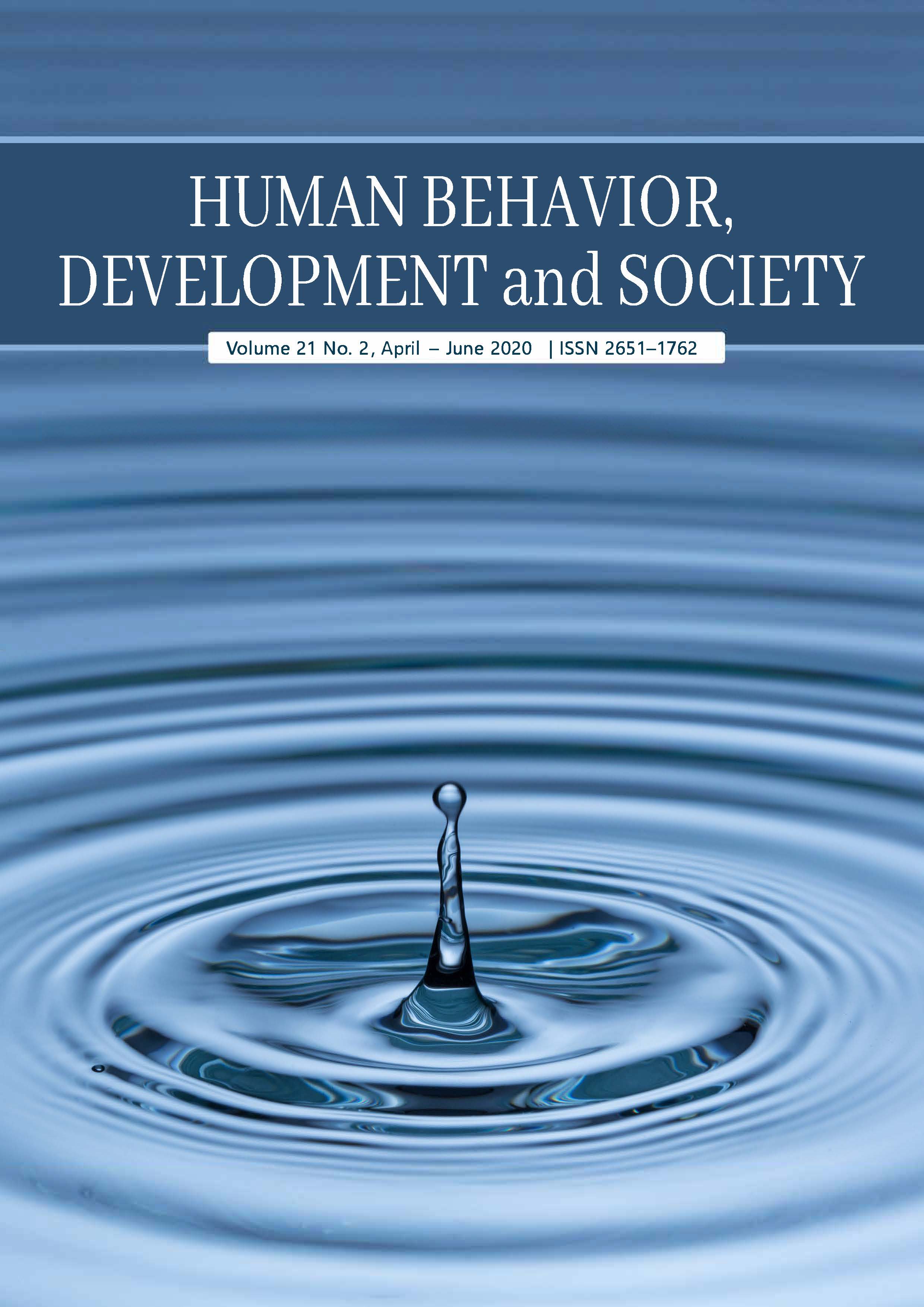Effects of a Health Education Program on Eye Care Behaviors of Selected Students in Saraburi Province Who Wear Contact Lenses
Main Article Content
Abstract
This quasi-experimental research aimed to study the effects of a Health Education Program on eye care behavior of 30 students who wear contact lenses and were selected by using purposive sampling. The educational program consisted of education, guidance, and support to create an environment that promoted self-care. Data were collected using a questionnaire for eye health care behavior, and analyzed by a t-test. The research found that students’ eye care behavior improved after being exposed to the educational program (t = -8.15, p < .05). Therefore, instruction concerning proper eye care and performing continuous follow-up helped to enhance proper eye care behavior. This especially included seeking prompt assistance from an ophthalmologist when eye abnormalities were experienced, removing contact lenses before showering or swimming, using the hands to gently rub and clean the lenses, reading or writing in a well-lit place with materials about 300 mm away from the eyes, and eating foods that were high in vitamin A or carotene to nourish the eyes. These behaviors helped to prevent eye problems associated with wearing contact lenses.
Article Details

This work is licensed under a Creative Commons Attribution-NonCommercial-NoDerivatives 4.0 International License.
Copyright: Asia-Pacific International University reserve exclusive rights to publish, reproduce and distribute the manuscript and all contents therein.
References
for Contact Lens Related Eye Infections Among Adults and Adolescents-United States,2016. MMWR: Morbidity & Mortality Weekly Report, 66(32), 842-845.
Cope, J. R., Collier, S. A., Rao, M. M., Chalmers, R., Mitchell, G. L., Richdale, K.,& … Beach, M. J.
(2015). Contact lens Wearer Demographics and Risk Behaviors for contact lens-Related Eye Infection- United States, 2014. MMWR: Morbidity & Mortality Weekly Report, 64(32), 865-870.
Food and Drug Administration. (2011).Things you must know about contact lens. Retrieved
December 12, 2018, from https://db.oryor.com/databank/data/printing/brochure/530317_แผ่นพับ_สิ่งที่ควรรู้เกี่ยวกับ_คอนแทคเลนส์หรือเลนส์สัมผัส_23.pdf
Homsombat, H. (2015). Knowledge Attitude and Behaviors of Using Contact Lenses in
undergraduate Student, Kasetsart University (Research report). Bangkok: Kasetsart University
Orem, D. E. (2001). Nursing: Concepts of Practice. 6th edition. United States: Mosby.
Papomma, S. (2016). The effacrs of health education on knowledge, attitude and health practice of
diabetes patient in community to reduce blood sugar levels. Journal of The office of Disease Prevention and control 7 Khon Kaen, 23(3), 46-55.
Passaphon, K. Santayopass, P., Srisang, P. and Kiriyahnang, K. (2014).Development of Self-care
Behaviors for People with Hypertension in Soi joke Community Bangsue District Bangkok Metropolitan. Kuakarun Journal of Nursing, 21(2), 83-96.
Pavasupree, S. (2016). Caring, wearing and Compliation of Contact Lens among Teenage Students in
Uthaithani province: Cross sectional study. Mahasarakham Hospital Journal, 13(2), 71-77.
Sitthajarn, W. (2009). Predictors of Eye Care Behaviors among University Students Wearing Contact
Lenses in Bangkok Metropolitan. Master of Nursing Science thesis. Chulalongkorn University.
Supiyaphun, C & Chongkhajonphong, P. (2561). Update Utilities of contact Lens in Recent Years and
Next Decade. Vajira Medical Journal: Journal of Urban Medicine, 62(2), 1-10.
Trakulldist, M and Ronnahongsa. (2016). The health education model for patient with diabetes at
Uttaradit Hospital. Journal of Health Education, 39(133), 30-44.
Tepsuriyanont, S and Chaichanawirote, U. (2017). Factors Affecting Keratitis Preventive Behavior
among University Students Wearing Contact Lens. Journal of The Royal Thai Army Nurses, 18(1), 122-130.
Wongsri, P. and Chintapanyakun, T. (2018). Utilization of Orem Theory with Caring and Advice for
Patients with Heart Failure. Journal of The police Nurses, 10(1), 209-219.


